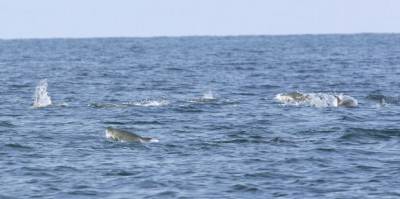 A multi-year research project underway at University of Texas Marine Science Institute in Port Aransas aims to use information garnered from tarpon scales provided by cooperating recreational anglers to learn, among other things, where a tarpon caught in Texas waters spent its juvenile days, where in the Gulf it has traveled, how much time it has spent in the open ocean and in brackish or freshwater areas, including which specific rivers or bays it entered and other information.
A multi-year research project underway at University of Texas Marine Science Institute in Port Aransas aims to use information garnered from tarpon scales provided by cooperating recreational anglers to learn, among other things, where a tarpon caught in Texas waters spent its juvenile days, where in the Gulf it has traveled, how much time it has spent in the open ocean and in brackish or freshwater areas, including which specific rivers or bays it entered and other information.
"A tarpon's entire life is written in its scales - where it swam, what it ate," said Dr. Benjamin Walther, associate professor in the Department of Marine Science at the institute. "All we have to do is be able to read what those scales tell us."
The research uses cutting-edge technology employing lasers, geochemical analysis of trace elements such as strontium and barium and stable isotopes of elements such as nitrogen, carbon and sulfur, to decipher a tarpon's life history.
From their birth and through their life, tarpon absorb traces of the chemical elements in their environment, with those traces incorporated in the calcium of bones.
Ben Walther's tarpon research is featured in the Houston Chronicle. more info










